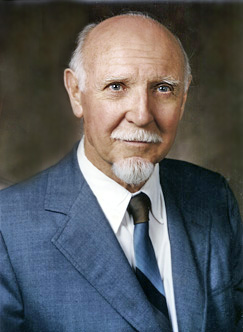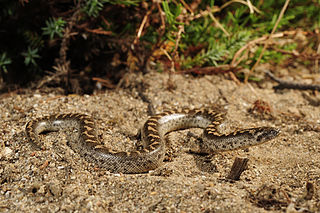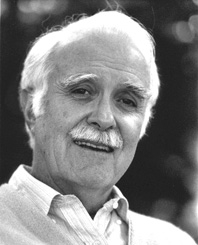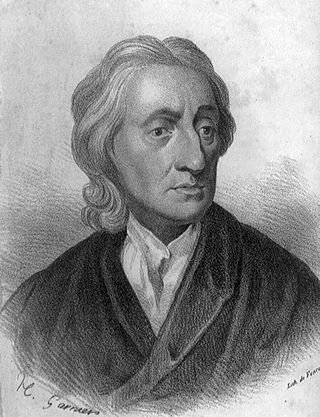Industrial and organizational psychology "focuses the lens of psychological science on a key aspect of human life, namely, their work lives. In general, the goals of I-O psychology are to better understand and optimize the effectiveness, health, and well-being of both individuals and organizations." It is an applied discipline within psychology and is an international profession. I-O psychology is also known as occupational psychology in the United Kingdom, organisational psychology in Australia and New Zealand, and work and organizational (WO) psychology throughout Europe and Brazil. Industrial, work, and organizational (IWO) psychology is the broader, more global term for the science and profession.
Historical linguistics, also known as diachronic linguistics, is the scientific study of how languages change over time. It seeks to understand the nature and causes of linguistic change and to trace the evolution of languages. Historical linguistics involves several key areas of study, including the reconstruction of ancestral languages, the classification of languages into families, and the analysis of the cultural and social influences on language development.

Instinct is the inherent inclination of a living organism towards a particular complex behaviour, containing innate (inborn) elements. The simplest example of an instinctive behaviour is a fixed action pattern (FAP), in which a very short to medium length sequence of actions, without variation, are carried out in response to a corresponding clearly defined stimulus.
Transpersonal psychology, or spiritual psychology, is an area of psychology that seeks to integrate the spiritual and transcendent human experiences within the framework of modern psychology.

Raymond Bernard Cattell was a British-American psychologist, known for his psychometric research into intrapersonal psychological structure. His work also explored the basic dimensions of personality and temperament, the range of cognitive abilities, the dynamic dimensions of motivation and emotion, the clinical dimensions of abnormal personality, patterns of group syntality and social behavior, applications of personality research to psychotherapy and learning theory, predictors of creativity and achievement, and many multivariate research methods including the refinement of factor analytic methods for exploring and measuring these domains. Cattell authored, co-authored, or edited almost 60 scholarly books, more than 500 research articles, and over 30 standardized psychometric tests, questionnaires, and rating scales. According to a widely cited ranking, Cattell was the 16th most eminent, 7th most cited in the scientific journal literature, and among the most productive psychologists of the 20th century.

William McDougall FRS was an early 20th century psychologist who was a professor at University College London, University of Oxford, Harvard University and Duke University. He wrote a number of influential textbooks, and was important in the development of the theory of instinct and of social psychology in the English-speaking world.
Mathematical psychology is an approach to psychological research that is based on mathematical modeling of perceptual, thought, cognitive and motor processes, and on the establishment of law-like rules that relate quantifiable stimulus characteristics with quantifiable behavior. The mathematical approach is used with the goal of deriving hypotheses that are more exact and thus yield stricter empirical validations. There are five major research areas in mathematical psychology: learning and memory, perception and psychophysics, choice and decision-making, language and thinking, and measurement and scaling.

A psychological adaptation is a functional, cognitive or behavioral trait that benefits an organism in its environment. Psychological adaptations fall under the scope of evolved psychological mechanisms (EPMs), however, EPMs refer to a less restricted set. Psychological adaptations include only the functional traits that increase the fitness of an organism, while EPMs refer to any psychological mechanism that developed through the processes of evolution. These additional EPMs are the by-product traits of a species’ evolutionary development, as well as the vestigial traits that no longer benefit the species’ fitness. It can be difficult to tell whether a trait is vestigial or not, so some literature is more lenient and refers to vestigial traits as adaptations, even though they may no longer have adaptive functionality. For example, xenophobic attitudes and behaviors, some have claimed, appear to have certain EPM influences relating to disease aversion, however, in many environments these behaviors will have a detrimental effect on a person's fitness. The principles of psychological adaptation rely on Darwin's theory of evolution and are important to the fields of evolutionary psychology, biology, and cognitive science.
Evolutionary developmental psychology (EDP) is a research paradigm that applies the basic principles of evolution by natural selection, to understand the development of human behavior and cognition. It involves the study of both the genetic and environmental mechanisms that underlie the development of social and cognitive competencies, as well as the epigenetic processes that adapt these competencies to local conditions.
Ernest Ropiequet "Jack" Hilgard was an American psychologist and professor at Stanford University. He became famous in the 1950s for his research on hypnosis, especially with regard to pain control. Along with André Muller Weitzenhoffer, Hilgard developed the Stanford Hypnotic Susceptibility Scales. A Review of General Psychology survey, published in 2002, ranked Hilgard as the 29th most cited psychologist of the 20th century.

John William Atkinson, also known as Jack Atkinson, was an American psychologist who pioneered the scientific study of human motivation, achievement and behavior. He was a World War II veteran, teacher, scholar, and long term member of the University of Michigan community.

The Behavior of Organisms is B.F. Skinner's first book and was published in May 1938 as a volume of the Century Psychology Series. It set out the parameters for the discipline that would come to be called the experimental analysis of behavior (EAB) and Behavior Analysis. This book was reviewed in 1939 by Ernest R. Hilgard. Skinner looks at science behavior and how the analysis of behavior produces data which can be studied, rather than acquiring data through a conceptual or neural process. In the book, behavior is classified either as respondent or operant behavior, where respondent behavior is caused by an observable stimulus and operant behavior is where there is no observable stimulus for a behavior. The behavior is studied in depth with rats and the feeding responses they exhibit.
Mark Schaller is an American psychological scientist who has made many contributions to the study of human psychology, particularly in areas of social cognition, stereotyping, evolutionary psychology, and cultural psychology. He is a professor of psychology at the University of British Columbia.
Susan Kay Nolen-Hoeksema was an American professor of psychology at Yale University. Her research explored how mood regulation strategies could correlate to a person's vulnerability to depression, with special focus on a depression-related construct she called rumination as well as gender differences.
The William James Fellow Award is an award of the Association for Psychological Science which "honors APS Members for their lifetime of significant intellectual contributions to the basic science of psychology". The requirement is that "recipients must be APS members recognized internationally for their outstanding contributions to scientific psychology". It is named after William James. As part of APS's 25th Anniversary, the APS Board of Directors recognized a larger class of William James Fellows in 2013, identifying them as individuals who have had a profound impact on the field of psychological science over the previous quarter century.
The APA Award for Distinguished Scientific Contributions to Psychology is an award of the American Psychological Association that "honors psychologists who have made distinguished theoretical or empirical contributions to basic research in psychology."
Sidney Leavitt Pressey was professor of psychology at Ohio State University for many years. He is famous for having invented a teaching machine many years before the idea became popular.
Jeanne Lavonne Humphrey Block was an American psychologist and expert on child development. She conducted research on sex-role socialization and theories of personality. Block was a fellow of the American Association for the Advancement of Science and conducted her research with the National Institute of Mental Health and the University of California, Berkeley. She retired in 1981 after being diagnosed with cancer, and died in December of the same year.
Josephine Rohrs Hilgard was an American developmental psychologist, psychiatrist, and psychoanalyst. She was a clinical professor in the Department of Psychiatry at Stanford Medical School. She conducted research on mental health and developed the theory of "anniversary reactions", which described how psychiatric issues might be triggered at anniversaries of significant events in a patient's life. She also specialized in hypnotherapy, and published research on the theory and practice of hypnosis.

Early theories in child psychology were advocated by three famous theorists: John Locke, Jean Jacques Rousseau and Charles Darwin. They represent three famous schools of thought, namely the influence of the child’s environment, the role of the child’s cognitive development and the relationship with evolutionary origins of behavior. These three schools formed the basis of modern developments in Child Psychology.







